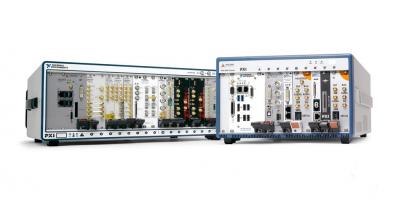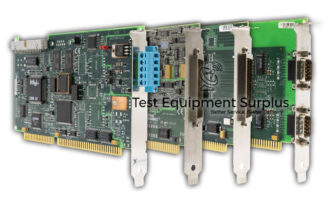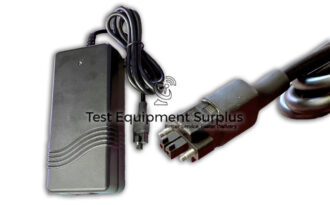Description
The product with the part number 142304B-01L / 785361-01 falls under the category of PC-based R Series. This device is identified as model PCIe-7820 and is described as a PCIe-7820R, NO DRAM, KINTEX-7 160T, R Series Digital IO device. It is powered by a Kintex-7 160T FPGA, which is a highlight of its technical specifications.
This device features 128 bidirectional digital channels, along with 4 input channels, making it versatile for various applications. It supports external clock extraction, ensuring synchronization with external devices is seamless. The maximum clock rate that can be achieved is 80 MHz, which caters to high-speed operations.
The PCIe-7820 is designed for applications such as sensor simulation, high-speed waveform generation, and HIL testing. It allows for a software voltage setting of 3.3 volts, ensuring compatibility with a wide range of devices. The logic families compatible with this device include LVTTL and LVCMOS, further enhancing its versatility.
Each digital channel of the PCIe-7820 can output a maximum DC current of 4 mA and also has the same capacity for sinking current. The input impedance is specified at 50 ohms, which is suitable for various signal types. Details on the minimum pulse width for I/O operations are provided, ensuring users can match the device’s capabilities with their specific requirements.
| Specification | Detail |
|---|---|
| Part Number | 142304B-01L / 785361-01 |
| Category | PC-based R Series |
| Model | PCIe-7820 |
| Description | PCIe-7820R, NO DRAM, KINTEX-7 160T, R Series Digital IO |
| FPGA | Kintex-7 160T |
| Digital Channels | 128 channels (bidirectional) |
| Input Channels | 4 |
| External Clock Extraction | Supported |
| Maximum Clock Rate | 80 MHz |
| Applications | Sensor simulation, High-speed waveform generation, HIL testing |
| Software Voltage Setting | 3.3 volts |
| Compatible Logic Families | LVTTL, LVCMOS |
| Maximum Output DC Current per Channel | 4 mA |
| Sink Current | 4 mA |
| Input Impedance | 50 ohms |
| Minimum Pulse Width for I/O |
Question 1: What is the FPGA type in PCIe-7820? Question 2: How many bidirectional digital channels does it have? Question 3: What maximum clock rate does PCIe-7820 support? Question 4: What applications is the PCIe-7820 designed for? Question 5: What is the output and sinking current capacity? |




